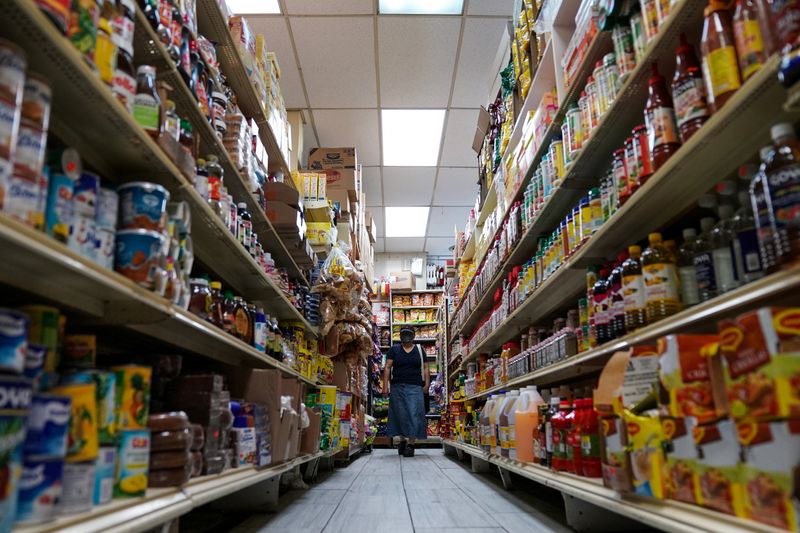WASHINGTON (Reuters) – U.S. consumer spending increased solidly in July, suggesting the economy remained on firmer ground early in the third quarter and arguing against a half-percentage-point interest rate cut from the Federal Reserve next month.
Consumer spending, which accounts for more than two-thirds of U.S. economic activity, rose 0.5% last month after advancing by an unrevised 0.3% in June, the Commerce Department reported on Friday. Economists polled by Reuters had forecast spending would accelerate by 0.5%.
This implies that consumer spending maintained most of the momentum from the second quarter, when it helped to boost gross domestic product growth to a 3.0% annualized rate. The economy grew at a 1.4% pace in the January-March quarter.
There have been concerns over the economy’s health following a jump in the unemployment rate to near a three-year high of 4.3% in July. The fourth straight monthly rise in the jobless rate led financial markets and some economists to put a 50-basis-point rate cut on the table when the U.S. central bank embarks on a widely anticipated policy easing in September.
The slowdown in the labor market, mostly driven by a step down in hiring rather than layoffs, has caught the attention of policymakers. Fed Chair Jerome Powell last week said “the time has come for policy to adjust.”
Most economists believe the Fed will resist a half-percentage-point rate reduction as the economy continues to hum along and inflation remains above the central bank’s 2% target, though price pressures continue to subside.
The personal consumption expenditures (PCE) price index rose 0.2% last month after an unrevised 0.1% gain in June, the report also showed. Economists had forecast PCE inflation would rise 0.2%. In the 12 months through July, the PCE price index increased 2.5%, matching June’s gain.
Excluding the volatile food and energy components, the PCE price index rose 0.2% last month, matching the increase in June. In the 12 months through July, core inflation increased 2.6% after advancing by the same rate in June.
The Fed tracks the PCE price measures for monetary policy, and has maintained its policy rate in the current 5.25%-5.50% range for more than a year, having raised it by 525 basis points in 2022 and 2023.

